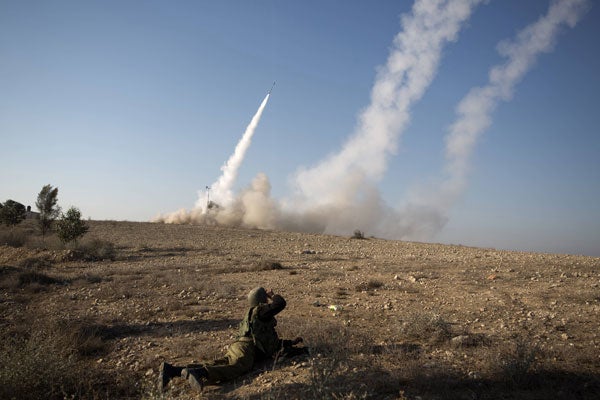Iron Dome: A Defense Bargain
Jordan Harms /
The Pentagon has recently requested more than $220 million in fiscal year (FY) 2014 to support Israel’s air defense system, known as “Iron Dome.” The Missile Defense Agency likewise requested an additional $175 million for FY 2015. Funding Iron Dome is in the interest of America’s closest ally in the Middle East and U.S. national security.
First installed in 2011, Iron Dome proved successful in protecting the Israeli population from rockets launched by Hamas last November and was successfully deployed in March’s Gaza escalation. Critics have argued that the cost of building a defense system like the Iron Dome is not economically viable, since limited numbers of expensive interceptors are fielded against large numbers of cheaper offensive missiles. For example, a typical Katyusha rocket used by Hamas costs anywhere from $500 to $1,000, while each interceptor loaded onto an Iron Dome battery costs about $62,000. But compared to the cost of other defense measures, Iron Dome is a bargain.
Within a fraction of a second, it can predict a rocket’s trajectory and prevent it from hitting a high-value target, thereby saving lives and preventing destruction of property. Had Iron Dome been in place during the 2006 Lebanon war, it would have cost $55 million. The Israelis spent $941 million on ammunition alone in that war.
Heritage’s Baker Spring has long advocated that the U.S. should increase its funding for Iron Dome as part of a U.S.–Israeli cooperation effort, asserting it would not only strengthen the deterrence posture of both Israel and the U.S. but help advance missile defense technology. Defense systems such as Iron Dome also contribute to overall strategic flexibility and offer better options for de-escalation in a conflict, because if population centers are protected, the need to send ground troops into enemy territory to seek and destroy rocket launch sites—as happened in the 2006 Lebanon War—is diminished.
There is little doubt that Iron Dome has demonstrated that a well-funded missile defense system contributes to an effective national security strategy.
Jordan Harms is currently a member of the Young Leaders Program at The Heritage Foundation. For more information on interning at Heritage, please click here.

